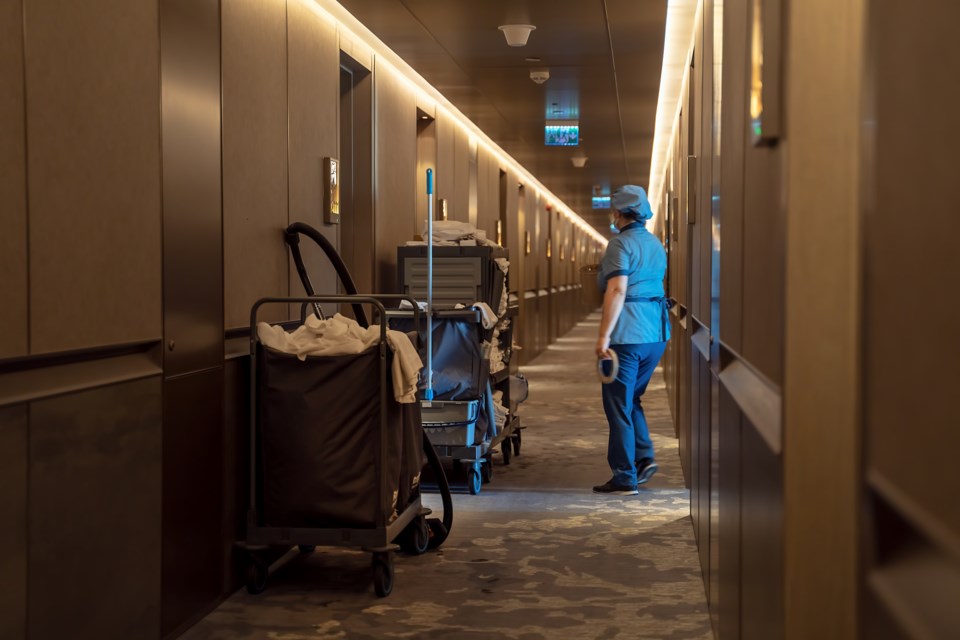As I suspect many people do, I often have a strong, immediate, adverse reaction to being inconvenienced in any way (or maybe it’s more rare than I think, and I’m just a mildly neurodivergent, self-righteous jerk).
Standing in the middle of the aisle at the grocery store having a chat, or walking too slow on the sidewalk in a group? How actually dare you? Coming to an unnecessary full stop in the merge lane? Are you insane?
In these situations I’m often reminded of something I learned a lifetime ago, in Psychology 100, about the mental armour afforded to us by simple virtue of being inside a vehicle.
In our cars, for example, we will say things about our fellow drivers, complete strangers all of them, we would never dream of saying to a stranger’s face on the street; growl all sorts of horrible insults and curse words into the air-conditioned comfort of our automobiles (just me?).
I was reminded again of this psychological phenomenon during some recent heavy-duty road work in my neighbourhood. As crews laboured all day in the hot sun, working to re-pave a long stretch of Lorimer Road, drivers were often left waiting for their turn in a long line of cars entering and exiting the neighbourhood.
Whenever I joined the queue, I quickly found the entitled urge to curse rising. How dare they inconvenience me with this four- to five-minute wait? I’ve got places to be!
Breathe in, breathe out. Just sit with your thoughts for a bit (the horror). The awful injustice will end before you know it.
And sure enough, in a little over a week, the heavy machinery was gone, leaving behind a masterfully re-paved stretch of road so smooth you’d think it was about to buy you a drink. Another week or so after that and the line-painting and roughwork was complete. Driving the road now you’d never know it was very recently a stress-inducing construction zone.
So here’s to the thankless men and women who did the work, did it fast, and did it right, while a never-ending line-up of impatient drivers (me) watched them from the cool comfort of their cars.
Having such a smooth ride home is nice, but there’s an added benefit: now every time I enter or exit my neighbourhood, I’m reminded of the people who really run Whistler.
They’re not just building our roads and infrastructure, they’re scrubbing toilets in lodges and hotel rooms that rent for obscene prices ($900 a night in September? Ouch); they’re getting up extra early to plow the streets in perilous snowstorms; they’re frying your eggs at 5 a.m. so you can hit the lift line on time.
They fix the air conditioning, sweep up the cigarette butts, drive the buses.
They’re the lifties and servers sleeping two to four to a room, and the municipal staffers wiping up public bathrooms (did you know in 2018 the Olympic Plaza washrooms went through 424 kilometres of toilet paper? That’s a lot of wiping).
They’re emptying public trashcans, and picking up garbage from the inconsiderate losers who couldn’t be bothered to find one.
In many cases, they’re working two or three jobs just to stay afloat, knowing all the while Whistler will never be their forever home.
Whistler’s self-scripted mythology holds that this place runs on passion—a town built by big dreams and bigger risks, all fuelled by adrenaline and good vibes and fresh mountain air.
The truth is, without the people who really run this place, the whole fantasy collapses.
But Whistler has mastered the art of holding up its beauty without fully accepting its own responsibility. It’s a place where we talk a big game on “climate action” while simultaneously inviting millions of travellers, by air and then car, each year; a world-class resort destination with often abhorrent worker conditions.
A 2024 report on the treatment of Temporary Foreign Workers in Whistler shines light on what the most vulnerable workers in our town often face: unsafe and unsanitary living and working quarters; intimidation and unfair pay; and in at least one case, a CCTV camera installed in staff accommodations, so your employer can watch you at all times.
That’s not just unacceptable—it’s downright dystopian. And those are just the instances we know about.
We don’t need another round of consultants to tell us how to do tourism smarter. We don’t need to “tell the Whistler story” in a glossier way.
We need to pay people better. Build housing faster. Wean ourselves off the TFW addiction. Stop pretending seasonal workers are temporary because we don’t want to commit to their well-being.
So the next time you find yourself stuck in construction, or in a crowded grocery store, save the inconvenienced outrage and spare a thought for the people who really run this town.
We all owe them a debt of gratitude.
The Whistler worker grind isn’t romantic, and it’s not glamorous. It’s hard. It’s relentless. And it’s invisible—until we choose to look.




